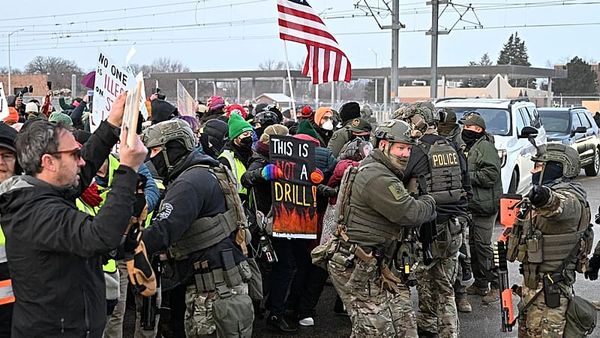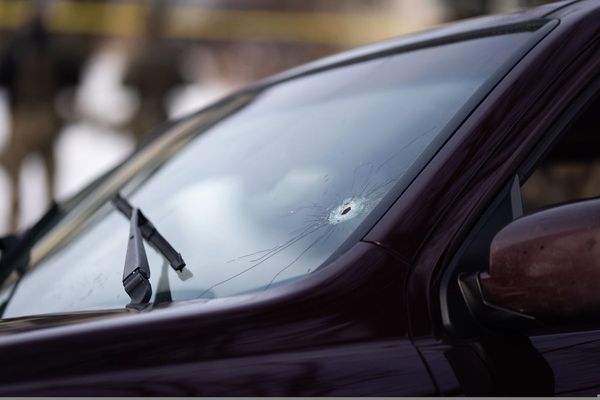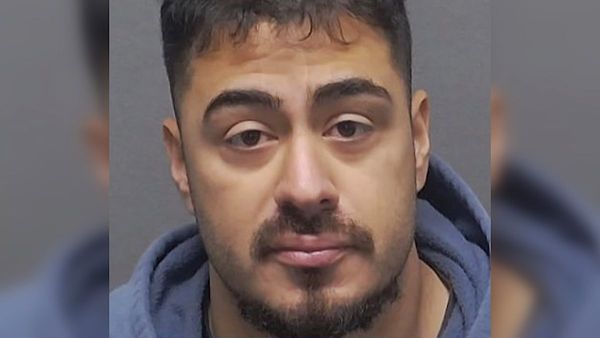
More than 200 miles away from Memphis, as Tyre Nichols’s family mourned the beating death of their son at the hands of police, Sylvia Askew was at home, taking care of her ailing husband in Nashville.
Sylvia knew how Nichols’s mother, RowVaughn Wells, felt. She too struggled over the last week, just as she had every time a Black man in America was killed by police: a decade ago, on 17 January 2013, her 24-year-old son Steven Askew was shot and killed by two white Memphis police officers moments after he awoke in his car, waiting for his girlfriend outside her home.
“It’s been very hard,” Sylvia said of the past week. “It made me reflect on a system that has not changed.”
Nichols’s death sparked national outcry. People not just in Memphis but in cities across the country took to the streets and demanded change after the release of video footage that depicted Nichols’s beating by five Memphis officers.
Steven Askew’s death, almost precisely a decade before Tyre Nichols was killed, and in a neighborhood less than 5 miles away, went largely unreported by national media. Sylvia and her son Sterling Jr said in interviews with the Guardian that was partly because they were discouraged, on the advice of legal counsel, from going public for fear of “tainting” their case.
“In 2013, we didn’t have the kind of information available to use, unlike in the Nichols case,” Sylvia said. “Thank God there were other cameras that caught their actions so [police] couldn’t lie about it. It was there to be seen. In Steven’s case it wasn’t.”
Nichols’s case has illuminated a familiar and persistent pattern of policing in the city, according to Steven Askew’s family and other Memphis residents who spoke to the Guardian in recent days. The city department has killed 28 people in the past decade, according to an analysis of data published by Mapping Police Violence. Seventeen of them were Black.
Despite reforms over that period, Memphis police officers continue to harass and kill the citizens they were tasked with protecting, activists and residents have claimed.
Silvia said she hopes the national outcry over Nichols’s death will finally put an end to the grief families suffer at the hands of the police.
“If we had spoken out, this wouldn’t have happened to the Nichols kid,” Sylvia said as she struggled with tears. “Had our case been more public, maybe it would have saved some more lives.”
***
As the ice fell on Memphis a day before Nichols’s funeral, Sterling Askew Jr sat in an empty parking lot near a police precinct on the city’s south-east side. These were the basketball courts where he and his younger brother had played together when they were kids.
It had been the first time he returned to that spot since his brother’s death 10 years ago. Paintings of Steven’s favorite team, the Memphis Grizzlies, watched over the empty court. Steven’s room in the family home has been left untouched from the day he died, with Grizzlies memorabilia on his wall alongside a collage of photos of his favorite rappers from Lil Wayne to Twista.
Steven, Sterling Jr said, was the “cool” brother. “He was the Fonzie of the neighborhood,” he added. “People loved my brother.”
Steven had just finished schooling to become an airplane mechanic. “He was a good person,” Sterling Jr said. “He was always neutral. He never took a side. He had a lot of strength about him. He never gave up.”
On the night he was killed, Steven was parked outside an apartment complex, waiting to pick up his girlfriend, when he fell asleep in his car. Two Memphis police officers, Matthew Dyess and Ned Aufdenkamp, responded to an unrelated noise complaint nearby and approached Steven’s vehicle, saw him asleep in the driver’s seat and later described him as likely intoxicated. They said they spotted a firearm inside the vehicle, and claimed as Steven woke he picked it up and pointed it. As the evidence would later show, their accounts were inconsistent and unreliable.
Seconds after Steven woke, the officers opened fire. Dyess and Aufdenkamp unleashed a barrage of nearly two dozen rounds, hitting Steven nine times, including six times in the back.
There was no video recording of the incident. “If we want justice, we have to do something,” Sterling Jr said. “We have to talk about it. What went wrong and why? How did it get like this?”
The shooting took place a year and a half before the death of Michael Brown in Ferguson, Missouri, which sent shock waves around the country and prompted the beginning of a new era of racial justice protests. It also happened three years before the rollout of body cameras among the Memphis police department and changes to the way officer-involved deaths are investigated in the city and state.
Neither officer was charged or removed from the force. A month after the shooting an internal investigation by the Memphis police department cleared both of them. They were allowed to return to active duty. Seven months later, the district attorney at the time, conservative prosecutor Amy Weirich, declined to present the shooting to a grand jury.
“[Steven] didn’t get justice, and those police officers didn’t pay for what they did,” Sylvia Askew said. “They had a DA on their side. They had a police chief on their side even though they committed a crime and did wrong. The people know that they did wrong. They got away with killing him.”

Years later, when video footage of Tyre Nichols being beaten by the police was released, activists occupied the bridge between Arkansas and Tennessee, just as they had seven years earlier after the killings of Philando Castile and Alton Sterling. Afterward, Chelsea Glass, an organizer for DeCarcerate Memphis, a coalition of community leaders advocating for redirecting policing funds toward community investment, reflected on what she saw as a “full circle moment” for the families of those killed by police.
“Families who have suffered losses at the hands of police are still out here fighting this fight for others. That is just so wrong,” Glass says. “It’s so tragic that we have let them down. As a community we have failed these families. But most of all, the people in positions of power – the people who had the ability to do something different – and they chose not to say they failed them.”
***
In January 2014, the Askew family pursued a wrongful death case against the city. As more evidence emerged, so did allegations of a cover-up. Documents showed that officers gave inconsistent statements about what transpired the night of Steven’s killing.
Dyess had told a responding officer at the scene that Steven had opened fire on them before they returned fire.
Four days later, when both officers were interviewed by internal affairs, they claimed Steven had only pointed a weapon. No casings were found in Steven’s car, and there were no recoverable fingerprints on the gun. Cellphone records, later reported in an investigation by the Commercial Appeal, showed the officers had exchanged several phone calls in between both interviews. The first statement on scene was not handed to the district attorney, it was discovered.
Further, crime scene photography showed that Steven had been found with a cigarillo in his right hand. During depositions reviewed by the Guardian, Dyess could not recall which hand he claimed Steven had pointed the gun with. Aufdenkamp claimed it was with his left hand.
Both officers claimed Steven had been laughing before he pointed his weapon and had flashed them a “gang sign”.
Steven was right-handed. He had never been part of a gang, according to multiple sworn affidavits.
“It is highly unlikely that Steven would have woken up abruptly and picked up the weapon (which he had a permit to carry) with his non-dominant hand, crossed over his body, and pointed it at the backseat passenger window of his car,” a motion in the lawsuit stated, adding that such a scenario had also been discredited by a forensic expert as part of the claim.
As the case dragged on, the Askew family felt the weight of the moment. Steven’s father, Sterling, struggled with his health.
“We were under a lot of duress, emotional and physical,” Sylvia said. “It was so much pressure and being on an emotional rollercoaster reliving it every day.” In hindsight, she wished she would have understood what the agreement meant for speaking up.
In September 2016, the Askew family settled their lawsuit with the city, just days before the case was due to go to trial. They had initially sued for $3m, but received $587,500, a substantial portion of which covered their legal fees.
Some members of the family were bound to a confidentiality agreement, which prevented them from discussing the case in public again. Sylvia and Sterling moved to Nashville to be closer to medical care at Vanderbilt. But they also felt the toll from the constant reminders of their son’s death from their time in Memphis.
Sylvia tried to come out of retirement to work as a secretary but needed to stop to take care of Sterling. “My focus the last five years has just been on trying to keep his dad around,” she said.
So when Tyre Nichols’s case reignited national outcry for police reform, Sterling Jr hesitated to bring up his brother publicly. When his brother died, he felt that residents cared about the case and were outraged. But the city had not showed the same anger.
“I was hurt with Tyre’s family,” he said. “I know what my parents were going through so I didn’t want to bring up my case to no one … nobody had outrage when it happened. Nobody cared.”
Sterling Jr said that the family’s agreement to the settlement changed people’s perception of his brother and allowed the city to “spin” the story. “They made my brother a villain by saying he was trying to shoot the police,” he said.
***
Officer Matthew Dyess continued to work as a patrolman for the Memphis police department until 2021, when he was relieved of duty after allegedly posting messages on Facebook in support of Kyle Rittenhouse, the conservative activist who shot dead two Black Lives Matter supporters in Kenosha, Wisconsin. Reports also noted Dyess had allegedly posted other inflammatory memes and a profile picture depicted him in uniform smoking a cigar.
A spokesperson for the Memphis police department confirmed that Aufdenkamp remains an MPD officer. His latest annual salary was listed as $60,157.50.
Aufdenkamp’s personnel file from the time, as reported by local media, indicated a litany of previous complaints, including a number of allegations of excessive force and domestic disturbance that involved his wife and was investigated by the Memphis police department. Aufdenkamp was required to take an anger management course as a result of one excessive force instance.
Efforts to reach both men were unsuccessful.
In recent days, members of the Askew family welcomed the rare and swift prosecution of the officers involved in Nichols’s death. They saw justice in motion in Tyre’s case.
But they also wished Steven had received his own. “That’s what should happen,” Sterling Jr said. “They killed a person. They beat him to death. They should be prosecuted to the fullest extent.
“If it was your son, you would want the same thing.”







